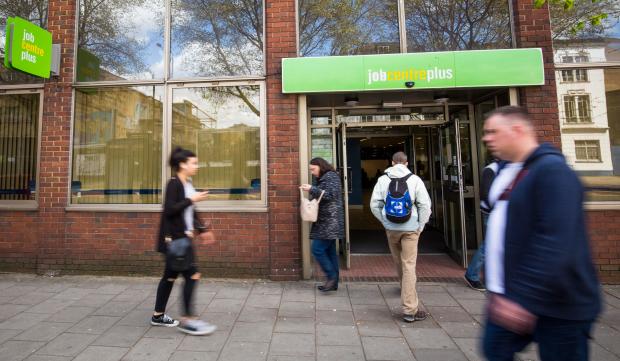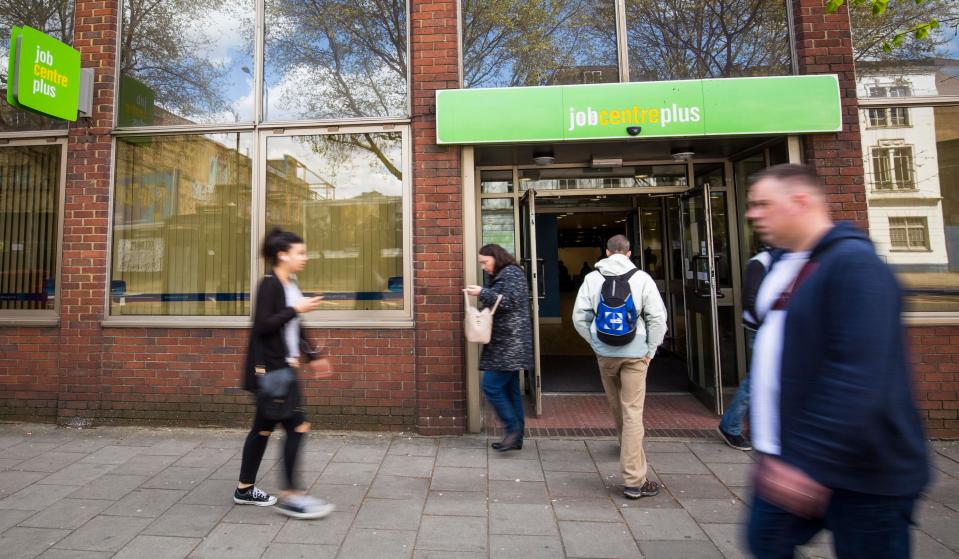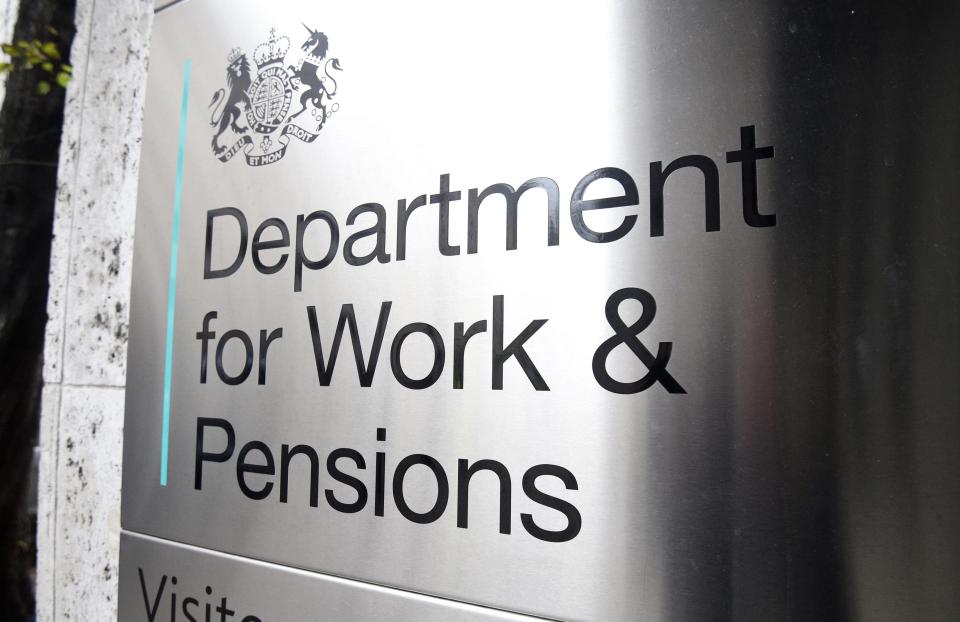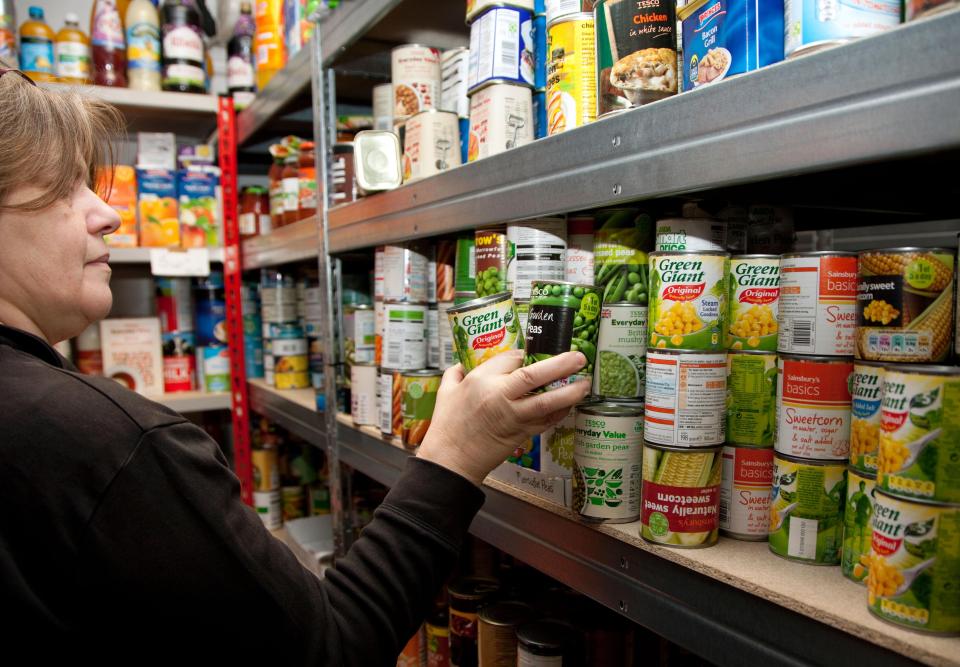The 7 shocking ways Universal Credit is FAILING revealed – and how to get help
A watchdog report claims a fifth of claimants face monthly delays and that the scheme is costing four times as much to run as promised

THE Government's flagship Universal Credit scheme has been slammed in a damning report by the watchdog.
The National Audit Office (NAO) has criticised the Department of Work and Pensions for a shambolic roll out of the scheme that's left some hard-up Brits waiting for up to FIVE months for their benefits.
The new welfare scheme which is designed to wrap a number of benefits into a single monthly payment, and replace payments like child tax credit, housing benefit and jobseeker's allowance.
But it's been riddled with setbacks ever since the roll out began in September 2017.
So far, £1.9billion has been spent on the scheme which has not been deemed "value for money" and blamed for the rising number of families forced to rely on foodbanks.
Here are the most damning points raised by the report:
1. A FIFTH of claimants' payments are delayed - and it won't get better for a YEAR
The report found that one in five people face delays in getting their payments on time and a quarter of new claimants - 113,000 vulnerable people - are forced to wait up to four weeks before getting the cash.
Between January and October last year, 20,000 households were forced to wait around 11 weeks and another 10,000 waited almost five months or more.
It doesn't get any better because the NAO estimates that between 270,000 and 338,000 people won't received their payments on time this year either.
The DWP said that it's "unreasonable" to expect every claimant to received payment on time because of the time it takes to verify each claim.
It doesn't expect the problems to be fixed for at least another year.
2. It costs FOUR times as much to run
The current cost of processing a claim was £699 when it's supposed to be £173 by 2024, according to the report.
So far the DWP has spent £1.3 billion on rolling out the scheme, and £600million on running it.
The Government promised the scheme would make a £34billion return in 10 years, but the watchdog warned that it could cost more than the system it's replacing.
It said: "Universal Credit has not delivered value for money and it is uncertain that it ever will".
What to do if you have problems claiming Universal Credit
IF you're experiencing trouble applying for your Universal Credit, or the payments just don't cover it, here are your options:
Apply for an advance - Claimants are able to get some cash within five days rather than waiting weeks for their first payment. But it's a loan which means the repayments will be automatically deducted from your future Universal Credit pay out.
Alternative Payment Arrangements - If you're falling behind on rent, you or your landlord may be able to apply for an APA which will get your payment sent directly to your landlord. You might also be able to change your payments to get them more frequently , or you can split the payments if you're part of a couple.
Budgeting Advance - You may be able to get help from the government to help with emergency household costs of up to £348 if you're single, £464 if you're part of a couple or £812 if you have children. These are only in cases like your cooker breaking down or for help getting a job. You'll have to repay the advance through your regular Universal Credit payments. You'll still have to repay the loan, even if you stop claiming for Universal Credit.
Cut your Council Tax - You might be able to get a discount on your Council Tax or be entitled to Discretionary Housing Payments if your payments aren't enough to cover your rent.
Foodbanks - If you're really hard up and struggling to buy food and toiletries, you can find your local foodbank who will provide you with help for free. You can find your nearest one on the
3. It's pushing extra costs onto local authorities
Councils, landlords and housing associations have seen an increase in rent arrears since Universal Credit started being rolled out, and these can take up to a year to be recovered.
The Department has compensated some authorities and said that it will pay for the additional costs if the authorities can prove them.
But it's not factored these costs into the initial budget, so the scheme can end up costs the taxpayer even more.
4. It's taking SIX YEARS longer to roll out than first planned
The scheme was supposed to be rolled out by October 2017. That's eight months ago.
Eight years after the project was first announced, only 10 per cent of claimants (815,000) are successfully using Universal Credit.
Now, it says it won't expect to complete the roll out until March 2023.
What is an advance credit?
STRUGGLING families who can't wait for the money to cover bills can get an advance cash payments to stop them falling in to debt.
Claimants are able to get some cash within five days or on the same day they make a claim in emergency cases - rather than waiting weeks for their first Universal Credit payment.
But the upfront payment is a loan which means you'll have to pay it back.
The repayments will be automatically deducted from your Universal Credit payments after you've taken the loan.
You should ask for the advance if you don't think you'll have enough money to live on between when you apply and when you'll get your first payment.
5. It's forcing people to turn to foodbanks
There has been a significant increase in the number of people using foodbanks since Universal Credits has been rolled out in three out of the four areas the report looked at.
One foodbank in Hastings saw an 80 per cent increase in the number of people relying on them.
As a result, it now needs an extra two tonnes of stock every week, leaving them with the lack of storage space.
It will cost them £200,000 to build more space, on top of extending their opening hours.
6. The Government will never be able to prove that it's a success
It was promised that the scheme would get 200,000 more people into work and that three million working households would see cash gains.
But the NAO says it "will never be able to measure" how many people it helps because it can't isolate the effects from other factors that could be getting people in to work.
Who can claim Universal Credit?
CURRENTLY, Universal Credit is mainly claimed by the unemployed, or those earning less than £338 a month.
But the benefit will replace jobseeker’s allowance, employment and support allowance, income support, working tax credit, child tax credit and housing benefit by March 2022.
Universal Credit has previously been criticised for lengthy delays to benefit payments, with a third of families having to wait six weeks for their first instalments.
However, Chancellor Philip Hammond announced in the Autumn Budget that the government would pour £1.5 billion into reducing the waiting time by seven days.
Roll-out of the Government's flagship welfare reform programme is expected to take place in 50 job centres.
By 2022, it is expected there will be a full roll out across the UK.
For information about whether you can claim, visit .
7. It's too late to go back
Even though the scheme is failing the majority of claimants, the watchdog can't see any "practical alternative" to continuing rolling it out.
NAO chief Amyas Morse added: "The benefits that it set out to achieve through Universal Credit, such as increased employment and lower administration costs, are unlikely to be achieved.
"Yet the Department has little realistic alternative but to continue with the programme and hopefully learn from past mistakes."
LATEST ON UNIVERSAL CREDITS
Former Work and Pensions Secretary Iain Duncan-Smith announced the introduction of a Universal Credit in 2010 designed to simplify the benefits system and improve work incentives - making it the landmark policy of his time in government.
But the programme was cut by around £3.4billion under Chancellor George Osborne five years later, which led to Duncan-Smith dramatically quitting his post.
Earlier this year, Chancellor Philip Hammond was urged by senior Tories to help struggling workers after it emerged many are just £4 a week better off than in 2010.
Research by the Joseph Rowntree Foundation revealed the poorest fifth of working households have barely benefited since the Tories came to power eight years ago.
We pay for your stories! Do you have a story for The Sun Online Money team? Email us at money@the-sun.co.uk or call 0207 78 24516. Don't forget to join the for the latest bargains and money-saving advice.














